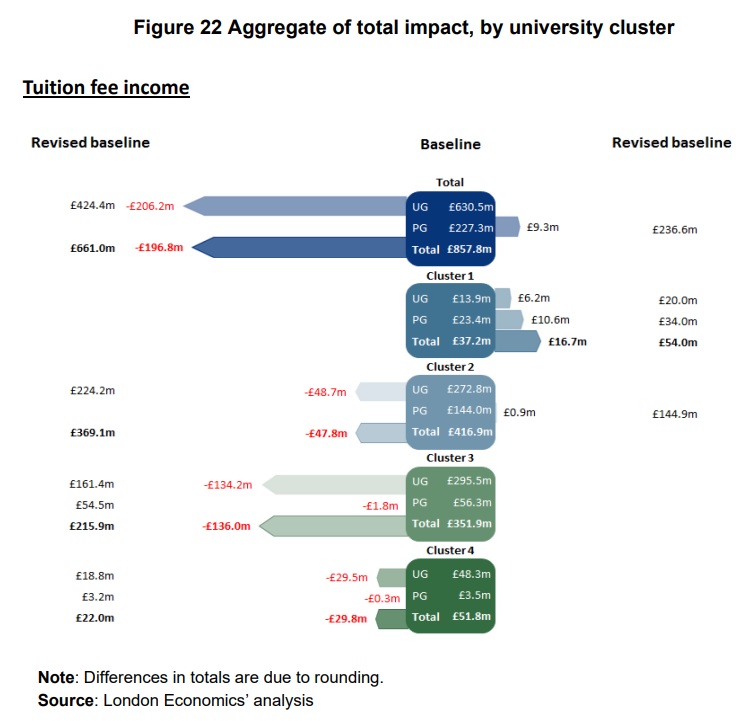This week, the government published some commissioned research on the financial impact of Brexit on UK universities.
The work looked at the likely impact of changing demand from EU students in response to various changes in fees and finances.

The broad picture of the impact was that while numbers would fall markedly, that would be partly offset by the rising tuition fees. In the case of ‘cluster 1’ (Oxford and Cambridge) that would mean an increase in income, but for the rest of the sector, a drop (especially for cluster 3 (roughly, pre-1992s)).
This is much as you’d expect, given the relevant international prestige of institutions and their exposure to international markets.
But what the analysis is not, is a full estimation of costs of Brexit to HE.
Even within the narrow coverage of the report – students – it does not take account of those factors that are not immediately financial in nature, such as social attitudes in sending countries towards the UK, or the soft power gains of exposing students to life here. Likewise, the scoping of foregone benefits from students remaining to work after their study is limited by some significant gaps in what data is to hand.
But students are only one vector of Brexit impacts.
Even with continuing participation in Horizon Europe, the UK will lose out on research funding opportunities, mostly because of staff deciding to move out of the country. The attractiveness of British HE as a global convenor of research and higher education more generally is compromised by the restriction of access to the EU.
All of which suggests that the costs to the sector will be much more considerable than this report outlines.
In some senses, this is a similar situation to the City: a reputation as a global centre seems to work against public policy solutions. Instead, the sector can shrug it all off and thrive mightily [sic], just like before.
But this is not a case of carrying on regardless.
All clusters are contingent and chipping/hacking away has an effect. In extremis, that might mean a failure of the cluster altogether; maybe not immediately, but further down the line, when it is all but impossible to stem the flow.
I’d suggest we run a workshop about this, but that’s not really going to cut it.
